QuestionWe've had an orphan kitten since he was around 3 weeks old. He is now 6 weeks old and still on kitten formula from a bottle. He has had diarrhea pretty much the whole time. The vet has treated him for worms and given him an antibiotic. He has also checked his stool for worms. He suggested getting the kitten on solid foods. We have been trying to get him to eat kitten chow mixed with his formula and kitten chow mixed with water for the past 2 weeks. He won't eat either. We would like to get him on solids in the hopes it will clear up his diarrhea. Do you have any suggestions? Also, do I need to worry about him getting worms again? If so, can my children get them from him?
AnswerHi Emily. I find that orphaned kittens do usually have a very difficult time transitioning to solid foods, because they don't have a mama to teach them that solids are for eating. Solid food has a foreign consistency and a foreign scent that orphans just don't associate with food, especially when weaned so young.
I highly recommend that you start trying to wean him with human baby food. Any stage one meat baby food is fine. Chicken is ideal. You can mix it with formula, or dab some on his nose and see if he'll start lapping it up off a plate. The consistency is much closer to formula than kitten chow is.
Baby food is good for weaning, but not as a long-term food. It's mostly water and isn't balanced, so it should only be used, with formula, for a week or two. Then try stepping him up to canned kitten food. The baby food should have bridged the gap between formula and canned kitten food by that time.
There are weaning foods. KMR 2nd step is one. It's similar in consistency and taste to kitten formula, but you thicken it with each passing day until it becomes a gruel, and then mix it with canned food. However, none of my kittens have ever cared for it much.
Personally, I don't feed my kittens any dry kibble, not even moistened, until they're past 12 weeks. They still have baby teeth until then, that aren't great for chewing hard food. And their bellies are still too sensitive to digest the corn and wheat that's usually found in dry foods. It ends up causing gas and diarrhea in young kittens.
As far as worms, unfortunately, these can be a chronic problem. If the kitty will go outdoors, you're guaranteed to have constant roundworm infestations. Even if he stays indoors, it is possible he may continue to contract new roundworm infections. This is because roundworm eggs are shed in the feces. Then they can be tracked throughout the house and may survive in the environment for over 2 years. If the cat steps on eggs and then grooms his feet, he could become reinfected. For this reason, regular worming is generally recommended.
If tapeworms were diagnosed, those are spread through swallowing fleas or eating infected prey. If he doesn't go outside and doesn't have fleas, you won't need to worry about those again, as long as you repeat the treatment 2 weeks after the first dose.
Hookworms aren't very common, but if he had these, the two treatments of worming medication should be all that's needed to get rid of those for good, as long as he stays inside.
The only way your children would be able to get any of these worms is if they swallowed a flea (for tapeworms), or if they played in the litter box. Hookworms can burrow through the skin - this would generally require prolonged contact with the cat's stool. And eggs would need to be ingested to spread roundworms. This is usually not a threat unless the child's hand has contact with stool and then he places his hands in his mouth.

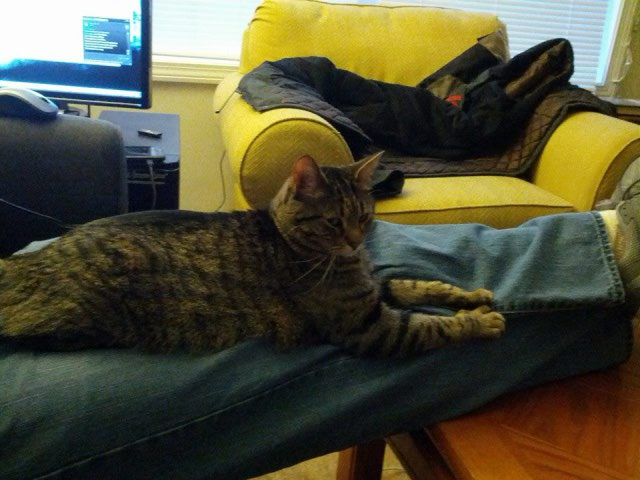 Chinese Li Hua?
Question
Magnus1
Hi,
My husband and I recently
Chinese Li Hua?
Question
Magnus1
Hi,
My husband and I recently
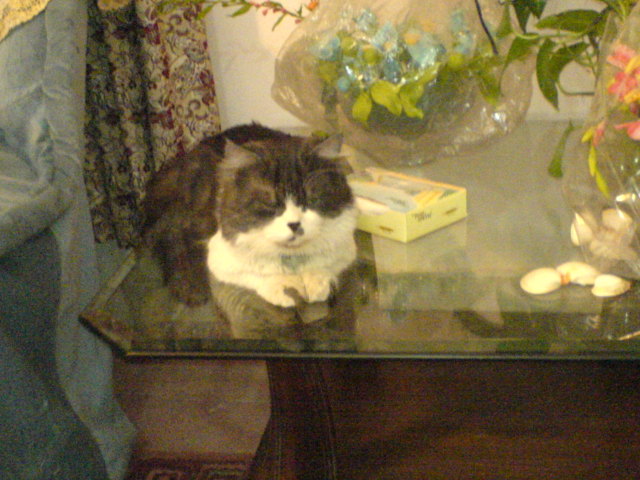 Persian Male Behavioral Issues.
Question
Jimmy
Dear Karen
Hope you are fine. I
Persian Male Behavioral Issues.
Question
Jimmy
Dear Karen
Hope you are fine. I
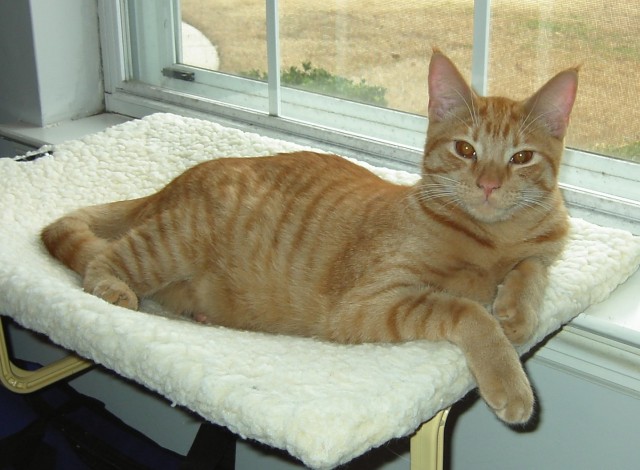 Lost Cat questions
QuestionRusty
QUESTION: Ali,
My new
Lost Cat questions
QuestionRusty
QUESTION: Ali,
My new
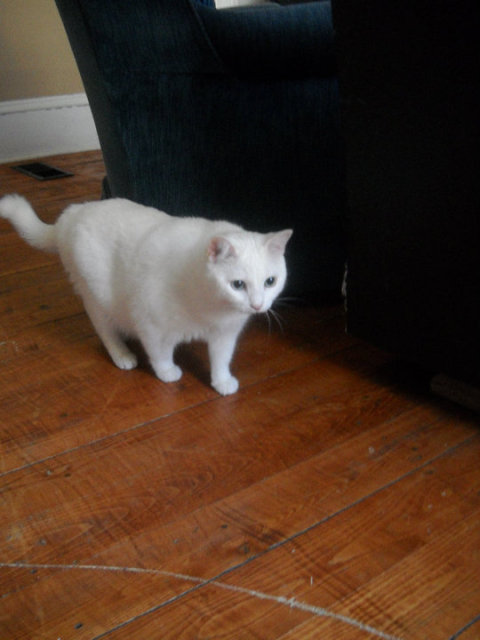 Breed Identification
Question
Zoey
I was curious if you could identify the b
Breed Identification
Question
Zoey
I was curious if you could identify the b
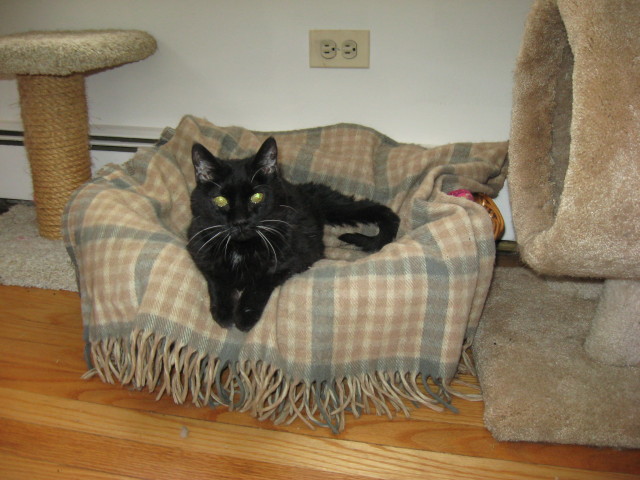 Senile Cat?
Question
Chloe
I have a cat thats about 18 1/2 years ol
Senile Cat?
Question
Chloe
I have a cat thats about 18 1/2 years ol